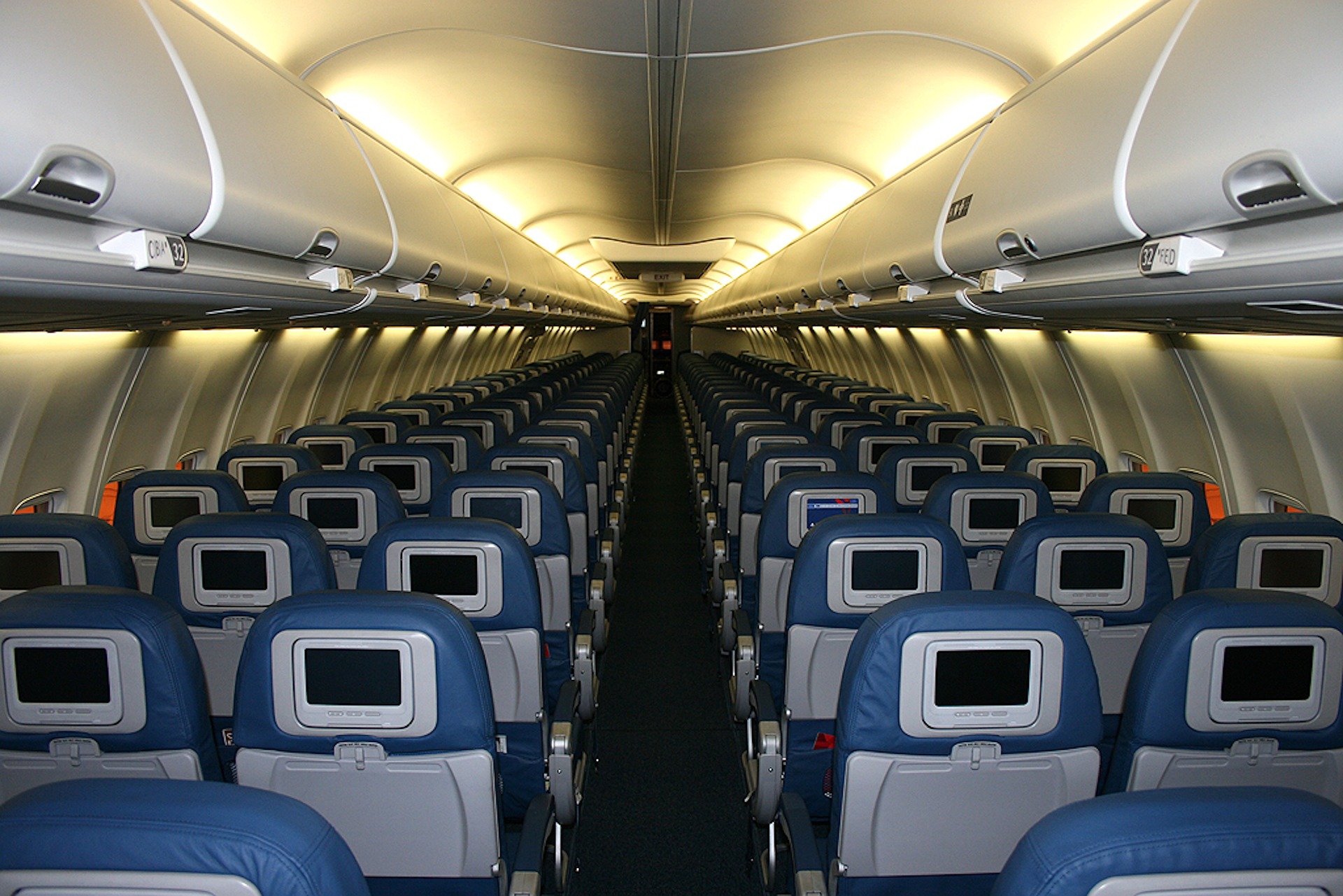In full transparency, the following is a media release from Sen. Ed Markey, who was elected by voters in the Commonwealth of Massachusetts to serve the state in Washington DC in the US Senate. He is a Democrat. (stock photo) SOURCE publishes press release from elected leaders as a community service.
***
[broadstreet zone=”59982″]

Washington (March 2, 2023) – Senator Edward J. Markey (D-Mass.) joined Senator Richard Blumenthal (D-Conn.) and Representative John Garamendi (CA-08) in reintroducing the bipartisan, bicameral Cabin Air Safety Act to protect airline pilots, flight attendants, and passengers from toxic cabin air. While planes pressurize and ventilate the cabin with outside air that flows through the engines, faulty seals and other malfunctions can lead to the circulation of engine oil, deicing fluids, insecticides, and other harmful fumes around the cabin.
According to reports, exposures to these toxins have led to respiratory and neurological conditions, such as breathing difficulties, headaches, and fatigue, and have nearly incapacitated pilots while flying. The legislation would establish air quality standards and assist with the monitoring, reporting, and investigating of these “toxic fume” events.
“Crew members and passengers should never have to worry about breathing toxic air that puts their health at risk,” said Senator Markey. “That is why I am proud to support the Cabin Air Safety Act. This critical legislation protects our crew members and passengers from being exposed to harmful air pollutants as they fly. I will continue to fight for the health, safety, and wellbeing of our passengers and crew members onboard who have the right to breathe safe, clean air.”
[broadstreet zone=”59983″]
“Passengers and crew deserve to know the air they’re breathing is safe and toxin-free,” said Senator Blumenthal. “Protecting fliers from harmful fumes that leak into the cabin is essential to safeguarding their health. Our legislation takes action where the FAA and airline industry haven’t—requiring air detector and monitoring equipment, incident reporting, and investigations of these events to ensure a safer travel experience for all Americans.”
“All Americans have the right to expect safe, clean air. I am deeply concerned by the documented cases where pilots, flight attendants, and passengers have become sick and even hospitalized from toxic cabin air,” said Representative Garamendi, a senior member of the House Committee on Transportation and Infrastructure. “The Cabin Air Safety Act takes commonsense steps to protect airline passengers and crew, including installing carbon monoxide detectors in commercial aircraft. I look forward to working with Senator Blumenthal to advance this critically important legislation.”
In the Senate, the bill is cosponsored by Senator Dianne Feinstein (D-Calif.). The bill is cosponsored by Representative Brian Fitzpatrick (PA-01) in the House.
“Airplane cabin air quality should never be compromised by toxic fumes,” said Senator Feinstein. “Yet, every year this frequently happens, putting pilots, flight attendants and passengers’ health at risk. My thanks to Senator Blumenthal for leading this legislation to help ensure everyone on board aircraft are safe from toxic fumes.”
“Aircraft manufacturers cannot ignore the threat of contaminated airflow that could endanger passengers, pilots, and flight crews,” said Senator Fitzpatrick. “This bipartisan, bicameral legislation will require reports on air quality in aircraft cabins, increase mandatory staff training, mandate air quality monitoring technology, and keep our skies safe.”
[broadstreet zone=”66385″] |
In addition to enabling the Federal Aviation Administration (FAA) to establish standards for cabin air quality, the bill would:
- Mandate Training Regarding Toxic Smoke or Fumes on Aircraft: Require that flight attendants, pilots, aircraft technicians, and first responders receive training on identifying toxic smoke and fumes. The training materials will include education on sources and types of fumes, symptoms, appropriate responses, and how to report incidents.
- Require the FAA to Record and Monitor Reports of Smoke or Fume Events: Direct the FAA to develop a standardized form/system to record airline crew reports of toxic smoke or fumes. The FAA would be required to publish these reports at least quarterly on a public website so that they can be searched, reviewed, and analyzed.
- Ensure Investigations Occur: Authorize the FAA to conduct investigations, in cooperation with the airlines and labor unions, after a toxic smoke or fume event to study the cause and prevent future events, and require the FAA to conduct such investigations if anybody required medical attention.
- Install Air Quality Monitoring Equipment and Detectors: Direct air carriers to install and operate onboard detectors and other air quality monitoring equipment situated in the air supply system to best enable pilots and maintenance technicians to locate the sources of air supply contamination. These detectors would alert the crew to poor air quality that is dangerous to human health. Aircraft manufacturers must develop procedures that inform the crew on how to respond to alarms.
The Cabin Air Safety Act is also endorsed by a range of crew and passenger advocacy organizations, including the Air Line Pilots Association International, Association of Flight Attendants, Allied Pilots Association, Association of Professional Flight Attendants, National Consumers League, International Association of Machinists and Aerospace Workers, Transport Workers Union of America, American Association for Justice, American Lung Association, International Union of Teamsters, and Southwest Airlines Pilots’ Association
The text of the Senate legislation can be found here.
Companion legislation was introduced in the House.
[broadstreet zone=”58610″] |

